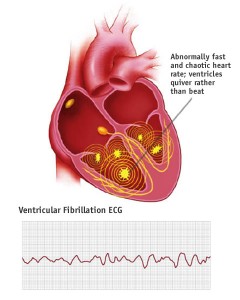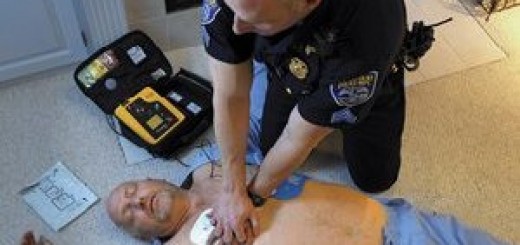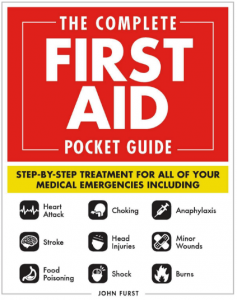What is ventricular fibrillation (VF)?
Ventricular fibrillation (VF) is the most common cause of cardiac arrest. It is a rapid, chaotic, lethal rhythm of the heart. In this condition the heart is unable to contract and therefore unable to pump life-sustaining oxygenated blood to the brain and other vital organs.
Death from ventricular fibrillation occurs within minutes and defibrillation is the only effective treatment. The sooner the electrical shock is provided the greater the chance of survival for the victim.
Basic life support (BLS) is at best a ‘holding’ procedure, the shorter the interval between the onset of VF and delivery of the shock, the greater the chance of successful defibrillation and subsequent recovery.
First responder attempted defibrillation is vital, as the delay to delivery of the first shock is the main determinant of survival in cardiac arrest – survival falls by seven to ten per cent for each minute after collapse.
Want to learn more about defibrillation? Why not take one of our free CPR and Defibrillation practice tests? Alternatively our friends over at firstaidforfree.com run free online defibrillator training courses.






